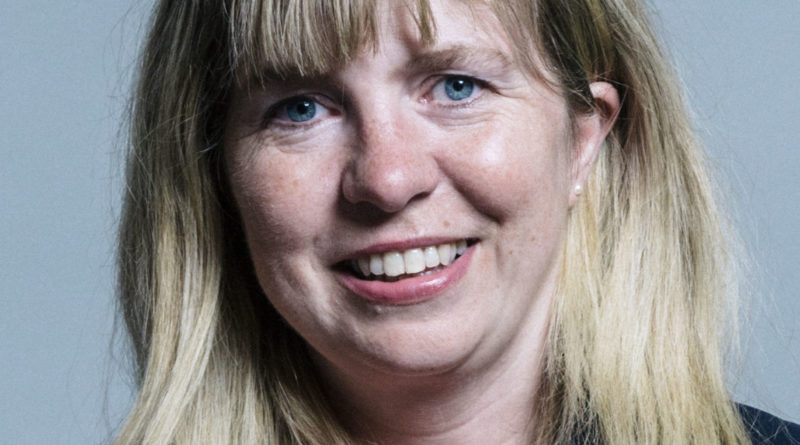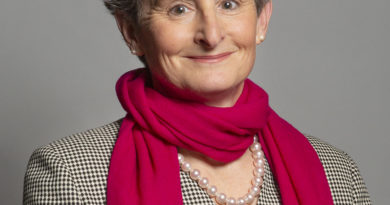Maria Caulfield – 2022 Speech on Access to GP Services
The speech made by Maria Caulfield, the Parliamentary Under-Secretary of State for Health and Social Care, in the House of Commons on 21 June 2022.
It is a pleasure to close this debate after a wide range of speeches. First, I will put my hands up and acknowledge that there are challenges and difficulties in primary care and dentistry. We heard that from Members from Scotland, Northern Ireland and Wales, which shows that all the devolved areas of healthcare are facing exactly the same challenges.
I start by thanking all those in primary care and dentistry for going above and beyond, and not just during the covid pandemic but as we are coming out of it, whether that was dentists providing urgent treatment under difficult infection control measures, or GPs delivering millions of vaccinations while continuing to see patients. We are now seeing not only the routine number of patients we would usually see, but the two years’ worth of patients who stayed at home and protected the NHS, as we asked them to do.
Despite the Opposition’s protests, we are making progress and record numbers of patients are being seen—higher than ever before. We are seeing 1.3 million patients per working day in primary care. That is a 44% increase since last year, and 63% of those are seen face to face. As my hon. Friend the Member for Wantage (David Johnston) said, that is 2 million more face-to-face appointments than this time last year.
There are record numbers of GPs, despite what Opposition Members have said—nearly 36,000 full-time equivalents, which is 1,400 more than in March 2019. We are going further, with 4,000 more trainees taking up GP training this year, providing more GPs for the future. We have delivered 30 million extra GP appointments, as part of our manifesto commitment to deliver 50 million more GP appointments. As an indication of the scale of the record numbers of patients coming through the system, we are seeing 11,000 cancer referrals a day, which is a record high.
How are we supporting GPs? We had the £250 million winter access fund, which helped deliver a cloud-based telephony system that some practices took up, which is transforming how patients can get through to their practices. If practices did not take up that offer, NHS England is rolling out the system across the country, so I urge them to look into it because it delivers better capacity, allowing patients to get through to make their appointments. It bought extra hours to pay for staff to do more shifts and see more patients, and it paid for more physical space in practices.
We have delivered 13,000 of the additional 26,000 roles pledged in our manifesto—paramedics, practice nurses, primary care pharmacists, physios and OTs working in primary care. We are tackling the bureaucracy that GPs face, and laid a statutory instrument to address fit notes to allow professionals other than GPs to return people to work. We have developed the pharmacy consultation system, whereby 111 or GP receptionists can refer people directly to a pharmacy for first-line care. We are developing a renewed GP contract, opening up access at weekends and in the evening. We are expanding community pharmacy with our work on Pharmacy First to deal with minor ailments, blood pressure checks and discharge medicine services.
We are also tackling the infrastructure problem through the Levelling-up and Regeneration Bill whereby health and local government will work hand in hand to tackle the issues my hon. Friend the Member for North East Bedfordshire (Richard Fuller) raised. We are also delivering—
Daisy Cooper
Will the Minister give way?
Maria Caulfield
No, I will not.
We are also delivering zero tolerance to abuse through the Police, Crime, Sentencing and Courts Act 2022. Labour talk the talk, but it was those of us on the Government Benches who voted to double the maximum sentence for those who abuse our emergency care workers. Labour actually voted against giving the Bill a Third Reading. That tells us all we need to know.
With the time I have left—
Holly Lynch
Will the Minister give way?
Maria Caulfield
I will not give way. Members did not—
Hon. Members
Give way!
Madam Deputy Speaker (Dame Eleanor Laing)
Order. If the Minister is not giving way, she is not giving way.
Hon. Members
Frit!
Maria Caulfield
I am not frit, but I am conscious that another debate follows this one. I did not want to play politics, but if Opposition Members want to, I will give them politics.
The Labour party is against everything and for nothing. We have not had one suggestion from Labour or the Lib Dems. They are full of complaints without a single solution. We know that the shadow Secretary of State was busy over the weekend deleting his past misdemeanours, but he cannot delete Labour’s misdemeanours with the NHS. As Davina McCall would say, let’s have a look at their best bits. There are the PFI contracts that they mysteriously introduced—£1.4 billion a year is still going to private investors because of the deals made under a Labour Government. Full Fact confirmed that £57 billion will be spent in total on those PFI deals.
Moving on to the 2004 GP contract negotiations, evening and weekend cover was taken away, handed to primary care trusts and given to private companies. Changes to the law in 2007, voted for by Labour Members, allowed bigger businesses to buy up GP practices, resulting in the evidence we saw on “Panorama” last week. The top hit is the 2006 Labour dental contract—
Wes Streeting
Oh, here we go.
Maria Caulfield
The hon. Gentleman may say, “Here we go,” but Opposition Members acknowledged this afternoon that the Labour contract was causing the problems. We are getting on with dealing with that.
My hon. Friend the Member for Waveney (Peter Aldous) asked what progress is being made. We put the negotiations to the BDA on 24 March and made a final offer—[Interruption.] They don’t want to listen, Madam Deputy Speaker; they don’t care. We put the final offer to the BDA on 20 May, and we are waiting to hear back. We are reforming the dental contract, which perversely disincentivises dentists to take on NHS work.
To correct the hon. Member for Portsmouth South (Stephen Morgan), he did not host that dental summit; it was my right hon. Friend the Member for Portsmouth North (Penny Mordaunt), who invited me. The summit came up with a solution, and I am meeting her team so that we can work on that and take it forward.
In addition to the dental contract, we are reforming how we take on dentists from overseas. We consulted the GDC, which recently ran a consultation, and we will be laying legislation to give it powers to allow dentists to come here more easily—[Interruption.]
Madam Deputy Speaker
Order. I can hear what Members are saying, and it is just not right. It is simply rude when we are supposed to be listening to the Minister.
Lloyd Russell-Moyle (Brighton, Kemptown) (Lab/Co-op)
And I think she could do better.
Madam Deputy Speaker
Order. You are not saying anything while you are sitting down—nothing! I call the Minister.
Maria Caulfield
Thank you, Madam Deputy Speaker. Labour Members do not want to hear about the work that the Government have been doing. They are just too busy criticising.
My hon. Friend the Member for Sleaford and North Hykeham (Dr Johnson) also mentioned the work that we are doing on centres for dental development. We are already working in places such as Cornwall to start training more dentists in those areas. In Norfolk and Norwich, we have met representatives from the university. The meeting was led by local MPs who brought people together to set up centres. We have also been working in Lincolnshire as well.
We are empowering the dental workforce by changing and upskilling dental technicians, dental nurses, and dental assistants to be able to take on more work. We are also tackling the issue of clawback.
You would think, Madam Deputy Speaker, that this is just an issue in England. If we look at Labour-run Wales, we find that the Community Health Councils have acknowledged that Wales is also facing a crisis of access to GPs, and that patients are waiting more than an hour to get through on the phone only to find that there are no appointments left.
The number of dental practices in Wales has fallen—from 1,500 in 2019 to 1,389 last year. In the past year alone in Wales, there was a 71% drop in courses of dental treatment. Why is that happening under a Labour Government? [Interruption.] I have given the answer. Opposition Members are too busy talking, Madam Deputy Speaker. They do not want to hear the answers.
Opposition parties need to be honest with the public. Whether we are talking about Scotland, Wales or Northern Ireland, we are all facing the same challenges. [Interruption.] No! There is a Labour-run Government in Wales and an SNP Government in Scotland. [Interruption.] The Opposition continue to play politics, but we are getting on with the business of reforming and making those changes. They have no solutions, no answers and no ideas. It is this Government who are delivering the changes. We are being honest with the British public that we will face challenges, but we are making the changes to improve access to both dental and primary care services.


